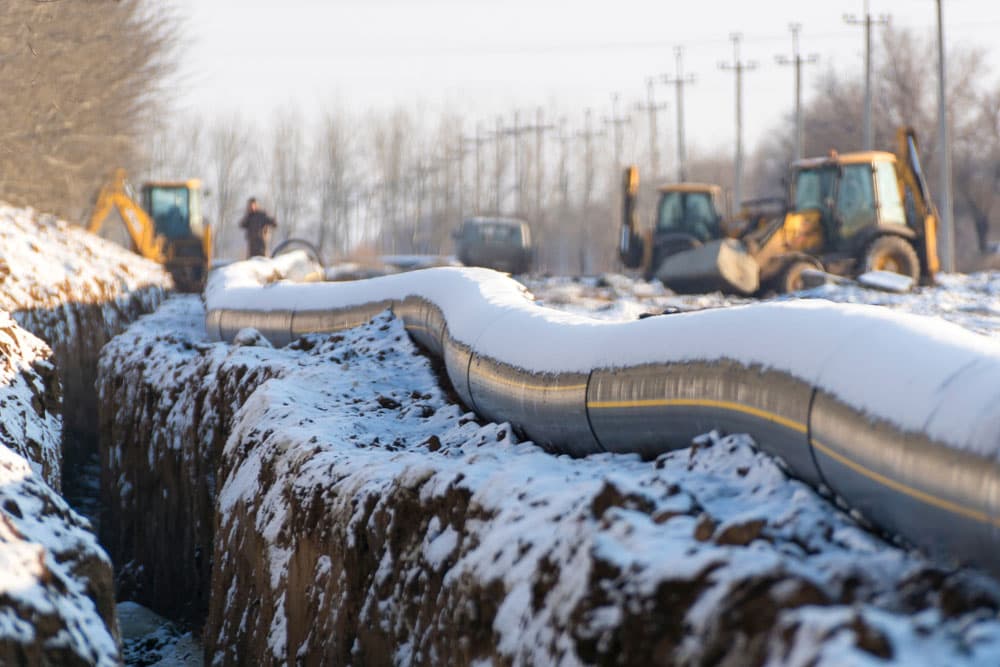First Nations groups have approached the Canadian government with a proposal to purchase an initial 51 percent of the stalled Trans Mountain pipeline.
The Trans Mountain crude pipeline that Canadian Prime Minister Justin Trudeau’s government bought from Kinder Morgan last year is getting interest from some indigenous groups hurt by Canada’s oil price crunch.
Up to six First Nation communities have approached the federal government with a view to potentially acquiring the line, Stephen Buffalo, chief executive officer of Canada’s Indian Resource Council, said in an interview at the Indigenous Energy Summit in Calgary, Bloomberg reports.
Trans Mountain’s expansion, which has stalled because of fierce opposition in British Columbia, is one of the projects that would help alleviate a glut that saw Canadian crude prices selling at a discount of as much as US$50 a barrel to the US benchmark last year.
“We’d like to see a consensus by the chiefs to at least put something on the table,” Buffalo said. “We have oil and gas producing nations that have expressed interest because the differential on the oil they have is hurting their communities.”
Trudeau’s government agreed to pay US$3.5 billion for the controversial project in a deal last May after Kinder Morgan gave up fighting lawsuits and government opposition in British Columbia, which the line crosses, to take crude from Alberta’s oil sands to the Pacific Coast.
While a purchase by indigenous groups “could be positive,” there are currently no direct talks on the matter as the government is focusing on responding to the court decision that stalled the project, Finance Minister Bill Morneau said in Ottawa.
“We welcome those discussions,” he said. “Those discussions would be appropriately held with indigenous peoples, as well as other potential owners, because we’ve said that this is not going to be a project, a pipeline, that will be owned over the long-term by the government.”
While Trudeau’s move kept the project alive, it suffered a setback three months later when a Canadian court nullified the project’s federal approval, forcing a restart of the regulatory process and pushing back construction by a year or more.
Environmental concerns include potential spills and fears that the line will heighten oil-tanker traffic in waters where killer whales live.
Delbert Wapass, former chief of the Thunderchild First Nation in Saskatchewan, now chairs Reconciliation Inc., a company set up to arrange an indigenous purchase of a stake in Trans Mountain. The group is seeking a 51 percent stake in the project and foresees investments of C$6.5 billion to C$7 billion, including the cost of construction, according to Steve Mason, Reconciliation’s managing director.
Alberta’s oil sands are the world’s third-largest source of crude reserves but the province’s oil industry has struggled getting pipelines built to access markets in the US and overseas. The bottlenecks prompted the provincial government to mandate a 325,000-barrel-a-day curtailment of output to support prices.
If indigenous groups do eventually buy the project, a probable option to fund the purchase would be along the model used by Fort McKay and Mikisew Cree First Nations, which raised C$545 million (US$410 million) through the bond market to buy a stake in an oil storage facility from Suncor Energy in late 2017.
Indigenous investment in Trans Mountain might help make the project more palatable for the general public, Brian Schmidt, chief executive officer of Tamarack Valley Energy, told reporters.
“If First Nations invested in Trans Mountain and took a stake, I think it sends a strong signal across Canada,” he said.

